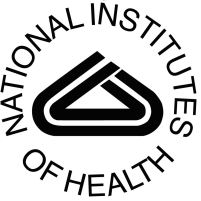National Institutes of Health Drops Conflict-of-Interest Disclosures for Universities
Monday, August 08, 2011

A year after the National Institutes of Health (NIH) announced a new requirement for universities and medical schools to put up websites disclosing any financial arrangements between corporations and NIH-funded researchers, the Obama administration is quietly trying to gut the plan.
In May 2010, the Department of Health and Human Services (overseer of the NIH) proposed new rules after Congress and the media exposed NIH grant recipients who had failed to tell their universities or medical schools about payments from companies that may have influenced their government-funded research. The regulations called for schools to publish any potential conflicts of interest on websites, in an effort to “underscore our commitment to fostering transparency, accountability, and public trust,” declared federal health officials.
But the website provision has reportedly been dropped by the White House Office of Management and Budget (OMB), which finalizes new regulations. Indications are that the higher education lobby may have leaned on Obama officials to do away with the online disclosure requirement.
But all is not lost yet. In addition to the Project on Government Oversight, a watchdog organization, calling for OMB to restore the website rule, Senator Charles Grassley (R-Iowa) has demanded that Obama’s budget office turn over all documentation relating to the rule change.
“I am troubled that taxpayers cannot learn about the outside income of the researchers whom the taxpayers are funding, and this flies in the face of President Obama’s call for more transparency in the government,” Grassley wrote to the OMB. “The public’s business should be public....I urge OMB to follow through and approve a rule that includes a publicly available website.”
-David Wallechinsky
Conflict Disclosure Plan Dropped (by Meredith Wadman, Nature News)
NIH's Plan for Public Disclosure Is Getting Help from Senator Grassley (by Ned Feder, Project on Government Oversight)
- Top Stories
- Unusual News
- Where is the Money Going?
- Controversies
- U.S. and the World
- Appointments and Resignations
- Latest News
- Trump to Stop Deportations If…
- Trump Denounces World Series
- What If China Invaded the United States?
- Donald Trump Has a Mental Health Problem and It Has a Name
- Trump Goes on Renaming Frenzy






Comments